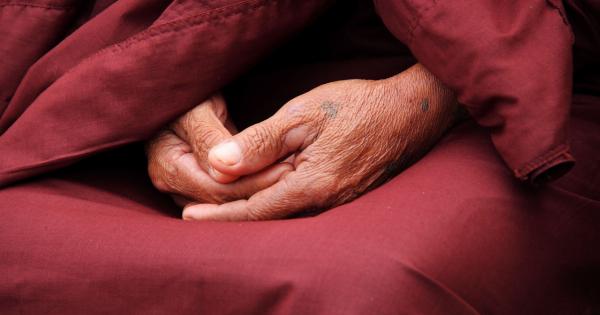Did you know that there is a correlation between the length of your fingers and your personality traits? This may sound strange at first, but according to scientific research, there is evidence to suggest that finger length could give an insight into your anxiety and depression tendencies.
Finger Length
The length of your fingers is determined by the amount of testosterone during fetal development. Generally, the index finger and the ring finger have a different length in males and females.
However, research suggests that the ratio of the length of these two fingers could reveal your anxiety and depression tendencies.
Index Finger Length
If your index finger is shorter than your ring finger, then you may be less likely to develop anxiety and depression.
This is because individuals with a shorter index finger tend to have higher levels of testosterone as compared to individuals with a longer index finger. Higher levels of testosterone are associated with confidence and masculinity which can lead to a lower risk of developing anxiety and depression.
Ring Finger Length
Individuals with a longer ring finger may be at a higher risk of developing anxiety and depression. This is because the length of the ring finger is a reflection of the amount of estrogen present during fetal development.
Higher levels of estrogen are associated with nurturing and caring which can lead to a higher risk of developing anxiety and depression.
Hand Shaking
The length of your fingers is not the only thing that gives an insight into your anxiety and depression tendencies. Research also suggests that the way you shake hands can reveal a lot about your personality.
If you grip someone’s hand too tightly, it could suggest that you have an anxious and nervous personality. On the other hand, if you have a weaker handshake, it could indicate a lack of confidence and low self-esteem.
Nail Biting
Nail biting is another behavior that could indicate anxiety and depression. Individuals who suffer from anxiety and depression may engage in nail-biting as a way to cope with their feelings.
Nail biting is a common behavior that is often seen in individuals with anxiety and depression.
Finger Tapping
Another behavior that could reveal anxiety and depression tendencies is finger-tapping. Individuals with anxiety and depression may tap their fingers as a way to relieve stress and anxiety.
Finger-tapping is a repetitive behavior that is often seen in individuals with anxiety and depression.
Conclusion
Your finger length, hand shaking, nail-biting, and finger-tapping behaviors could reveal a lot about your anxiety and depression tendencies.
Although these behaviors do not necessarily mean that you have an anxiety or depression disorder, they are potential signs to consider. If you are experiencing symptoms of anxiety and depression, it is important to seek help from a mental health professional.




























